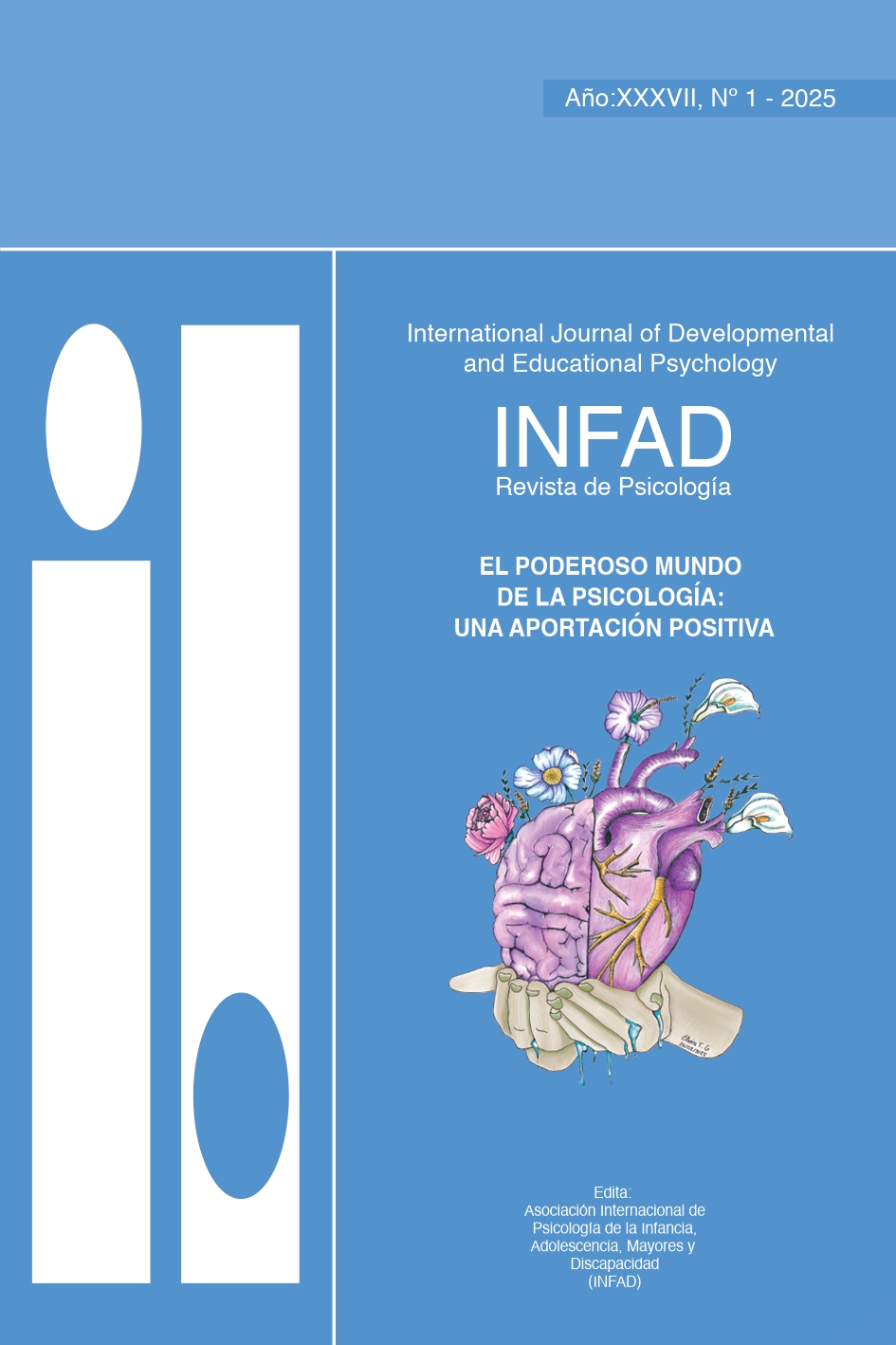Hearing loss: an analysis of future teachers' preparation
Main Article Content
Abstract
This study analyzes the perceptions of undergraduate students pursuing a Teaching Degree with a specialization in Therapeutic Pedagogy at the University of Alicante, focusing on their training and attitudes toward the inclusion of students with hearing loss. The aim is to identify strengths and areas for improvement in initial teacher education to promote more effective inclusive practices. A quantitative, non-experimental, cross-sectional, and descriptive design was employed. The non-probabilistic sample consisted of 80 fourth-year students enrolled in the course “Sensory and Motor Disabilities: Development, Communication, and Intervention.” The average age was 22 years (SD = 2.94), with 96.25% women. Data were collected using a Likert-type questionnaire validated by Fernández Gómez (2018), composed of 12 items grouped into two dimensions: perception of the training received and sensitivity toward students with hearing loss. Responses ranged from 1 (“Strongly disagree”) to 5 (“Strongly agree”). Descriptive statistics (means and standard deviations) were used for analysis. The results reveal a high level of sensitivity among students toward inclusion (M = 4.49; SD = 0.22), but a more moderate evaluation of their training (M = 3.85; SD = 0.30). In conclusion, although future teachers show positive attitudes and strong commitment to inclusion, there is a clear need to strengthen their specific training to ensure high-quality educational support for students with hearing loss.
Article Details
Section

This work is licensed under a Creative Commons Attribution-NonCommercial-NoDerivatives 4.0 International License.
Attribution — You must give appropriate credit, provide a link to the license, and indicate if changes were made. You may do so in any reasonable manner, but not in any way that suggests the licensor endorses you or your use.
NonCommercial — You may not use the material for commercial purposes.
NoDerivatives — If you remix, transform, or build upon the material, you may not distribute the modified material.

This work is licensed under a Creative Commons Attribution-NonCommercial-NoDerivatives 4.0 International License
How to Cite
References
Avramidis, E., & Norwich, B. (2002). Teachers’ attitudes towards integration/inclusion: A review of the literature. European Journal of Special Needs Education, 17 (2), 129-147. https://doi.org/10.1080/08856250210129056
Corbí, M., Tombolato, M., Bueno-Sánchez, L., Hermans K., Valenti, A., Garcés-Ferrer J., Straniero, A., Broj in, B., Mesquita, C., Bonifácio, E., Martini, M., Rodríguez-Cano, S., Milants M., y Glumbi, N. (2021) Intellectual disability in higher education: Self-perceived training needs of university teachers. SPECIJALNA EDUKACIJA I REHABILITACIJA, 20 (1), 1-15. http://doi.org/10.5937/specedreh20-31002
Eriks-Brophy, A., & Whittingham, J. (2013). Teachers’ Perceptions of the Inclusion of Children With Hearing Loss in General Education Settings. American Annals of the Deaf , 158 , 63 - 97. https://doi.org/10.1353/AAD.2013.0009.
Fernández Batanero, J. M. (2013). Competencias docentes y educación inclusiva. Revista electrónica de investigación educativa, 15 (2), 82-99. https://www.scielo.org.mx/pdf/redie/v15n2/v15n2a6.pdf
Fernández Gómez, M. (2018). Futuros maestros frente al alumnado con discapacidad auditiva: Sensibilidad y percepción sobre su formación [Trabajo fin de máster, Universidad de Valladolid]. UVaDOC. https://uvadoc.uva.es/bitstream/handle/10324/32870/TFM-G909.pdf?sequence=1
Figueredo, V.; Pérez, M.; Sánchez, A. (2017). Interculturalidad y discapacidad: Un desafío pendiente en la formación el profesorado. Rev. Nac. Int. Educ. Inclusiva, 10 , 57–76.
Keerthan K, S., Gunjawate, D. R., Ravi, R., & Kumar, K. (2025). Exploring teachers’ knowledge and attitudes towards the inclusion of children with hearing impairment in mainstream education- A systematic review. International journal of pediatric otorhinolaryngology, 190 , 112255. https://doi.org/10.1016/j.ijporl.2025.112255
Lindner, K., Schwab, S., Emara, M., & Avramidis, E. (2023). Do teachers favor the inclusion of all students? A systematic review of primary schoolteachers’ attitudes towards inclusive education. European Journal of Special Needs Education, 38 (5), 766-787. https://doi.org/10.1080/08856257.2023.2172894
Myronova, S., Dokuchyna, T., Rudzevych, I., Smotrova, O., y Platash, L. (2021). Current Problems of Teachers’ Readiness of Higher Educational Institutions for Implementing Inclusive Education. Revista Romaneasca Pentru Educatie Multidimensionala, 13 (3), 151-165. https://doi.org/10.18662/rrem/13.3/445
Nistal Anta, V., López Aguado, M. M., & Gutiérrez Provecho, L. (2024). Competencias docentes para la inclusión de alumnos con necesidades educativas especiales: una revisión sistemática. Revista complutense de educación , 32 (2), 393-405.
Pérez-Jorge, D., Rodríguez-Jiménez, M. d. C., Ariño-Mateo, E., & Sosa-Gutiérrez, K. J. (2021). Perception and Attitude of Teachers towards the Inclusion of Students with Hearing Disabilities. Education Sciences , 11 (4), 187. https://doi.org/10.3390/educsci11040187
Saloviita, T. (2018). Attitudes of teachers towards inclusive education in Finland. Scandinavian Journal of Educational Research, 64 (2), 270-282. https://doi.org/10.1080/00313831.2018.1541819
Sko i Mihi , S., Vlah, N. i Šoki , M. (2018). Attitudes of preschool educators and primary school teachers towards the inclusion of children and students with hearing impairments in regular educational institutions. Hrvatska revija za rehabilitacijska istraživanja, 54 (1), 0-0. https://doi.org/10.31299/hrri.54.1.6
Steen, T., & Wilson, C. (2020). Individual and cultural factors in teachers’ attitudes towards inclusion: A meta-analysis. Teaching and Teacher Education, 95 , 103127. https://doi.org/10.1016/j.tate.2020.103127
Stemberger, T., & Kiswarday, V. (2018). Attitude towards inclusive education: The perspective of Slovenian preschool and primary school teachers. European Journal of Special Needs Education, 33 (1), 47-58. https://doi.org/10.1080/08856257.2017.1297573
Triviño-Amigo, N., Barrios-Fernández, S., Mañanas-Iglesias, C.; Carlos-Vivas, J., Adsuar, J.C., AcevedoDuque, Á., y Rojo-Ramos, J. (2022). Differences among Male and Female Spanish Teachers on Their Self-Perceived Preparation for Inclusive Education. Int. J. Environ. Res. Public Health, 19 , 1-9. https://doi.org/10.3390/ijerph19063647
Tuli, I., Sarkar, A., Ilapakurty, B., & Najar, I. (2018). Knowledge, Attitude of Sikkim Primary School Teachers About Paediatric Hearing Loss. Indian Journal of Otolaryngology and Head & Neck Surgery, 70, 331-336. https://doi.org/10.1007/s12070-017-1095-4.
Williams-Brown, Z.; Hodkinson, A. (2020). ‘What is considered good for everyone may not be good for children with Special Educational Needs and Disabilities: Teacher’s perspectives on inclusion in England. Education 3–13 , 1–15.

